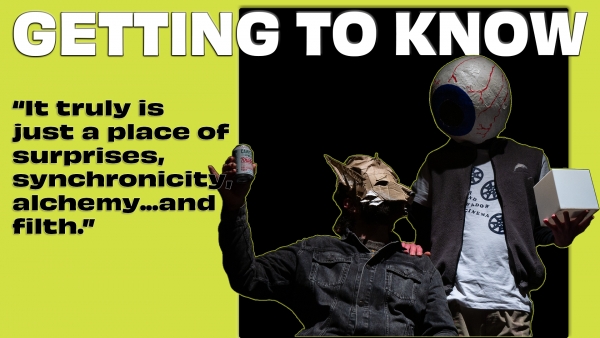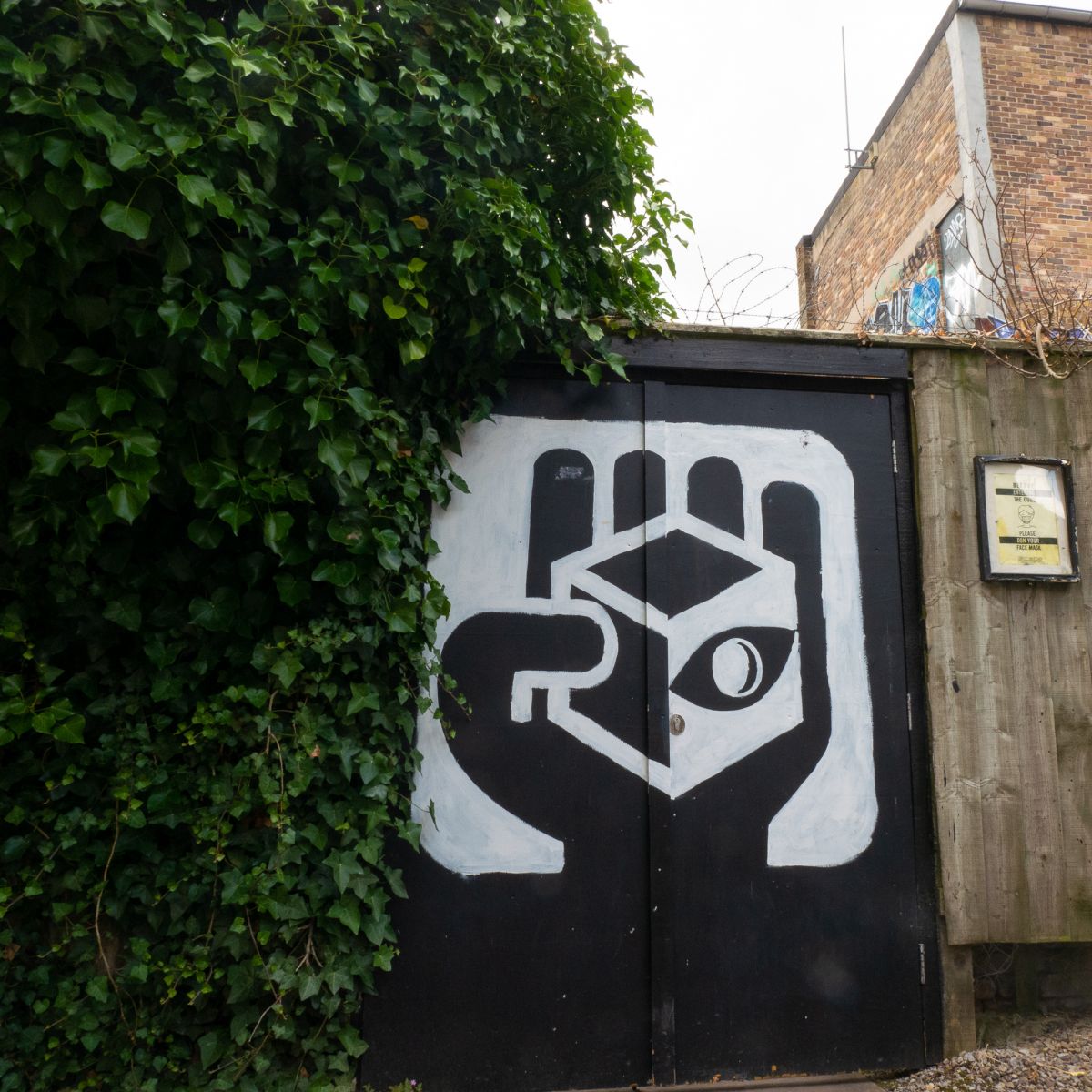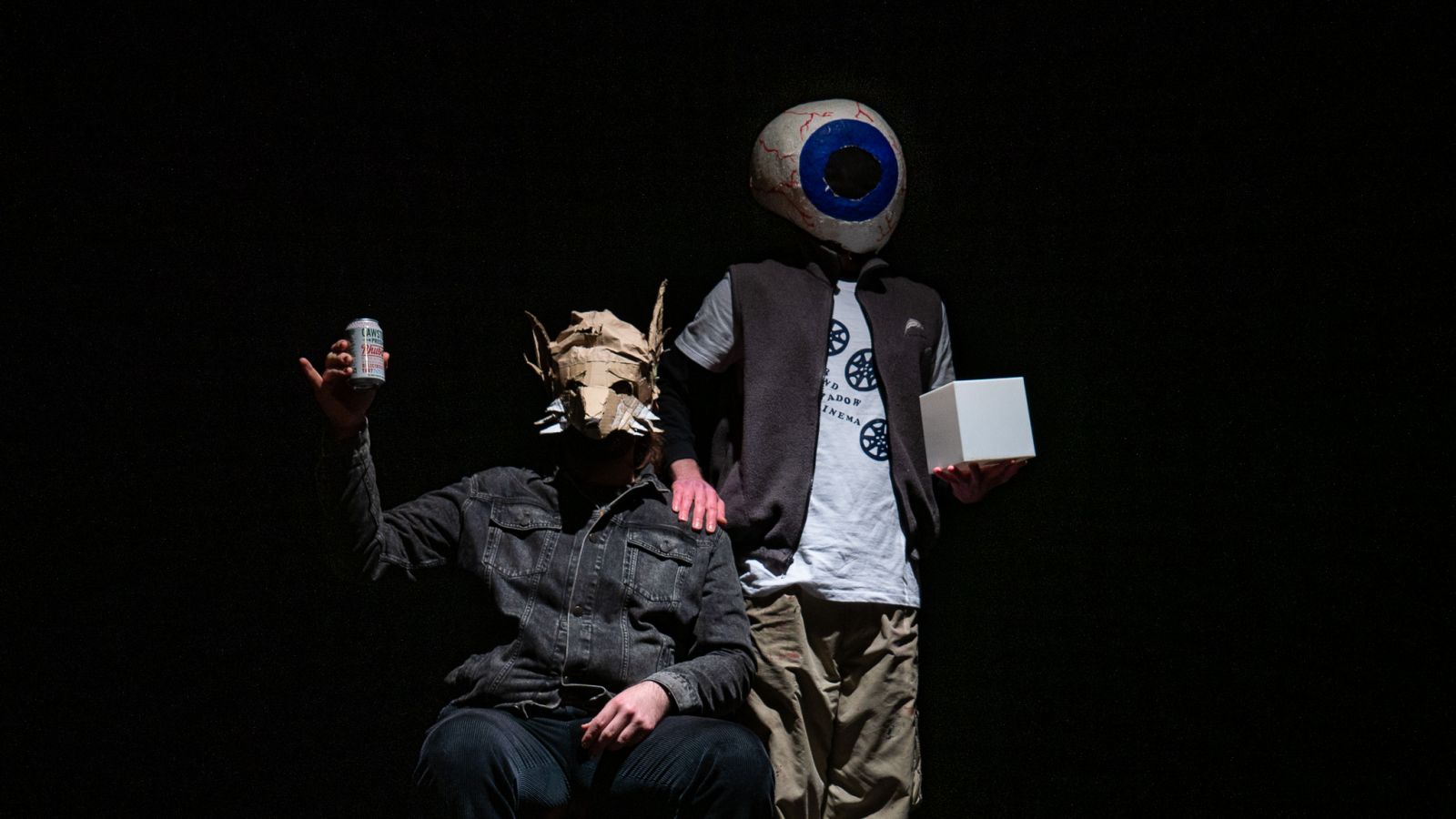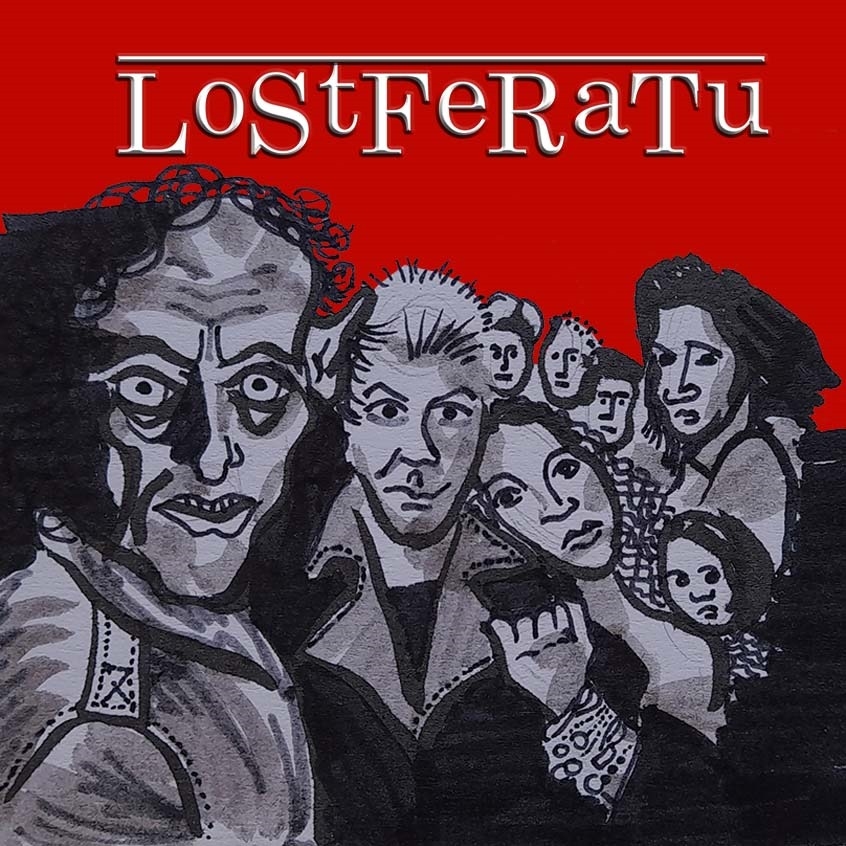
Getting to Know The Cube with Rhodri Karim
Posted on: 18 Jan 2024Welcome to the first Getting To Know of the new year! It's big one (in more ways than one) - a bumper interview with Rhodri Karim and colleague Peter, volunteers at Bristol's wildest underground arts cinema and venue, The Cube Microplex!
Can you give us an introduction to yourself, and The Cube?
What would I be without The Cube, that’s the question. Who would I be?
I moved to Bristol almost a decade ago, and the first week I arrived in Bristol, someone brought me to The Cube to see a film. I can’t even remember what film it was, but as an experience I was very enamoured with the place, I thought it was amazing, beautiful – the kind of underground venue I wanted to spend more time in. Then my friend was like: “It’s all run by volunteers”. I went straight up to the bar, and I said “I want to volunteer.”
Over the course of almost a decade in Bristol it’s come to define completely the way I am here and what I expect from being part of this city. It’s a really social space in which people make connections over making art. We have a really interesting programme of music, film, theatre, performance, immersive and various other transmedia. Anything you can or can’t put on a stage.
The heart of The Cube is also the collective of people who animate it: It’s completely programmed by the public in a sense, in that there are no barriers to stop anyone from becoming a volunteer – other than our own ineptitude and slowness – and once they are, then the sky’s the limit!
If I were to describe The Cube in a sentence, it would be ‘a non-specific amplifier for weird ideas’. It takes a scrap of enthusiasm that someone has, matches it with someone else’s enthusiasm and out of that kaleidoscope comes very unexpected collaborative artmaking.
I came to Bristol as someone who made music, and I found The Cube Orchestra – which for almost 20 years was a weekly free improvisation group. That helped me keep up with my music skills – but it turned into putting on gigs, which turned into putting on talks, which eventually turned into putting on immersive performance art parties.
It allowed me the possibility of transforming myself too, trying things out, trying out ritual, trying out costume, trying out all these ways of showing up in public and in a social space that I hadn’t thought about before.
When I first came to Bristol I was a software engineer, and now I’m a psychotherapist. I’ve taken the opportunity to retrain, and I’m pretty sure The Cube is part of that, in terms of giving me the confidence to explore domains of experience and expression that I wouldn’t have.

Can you give us a short history of The Cube?
It begins in the 1920s, the building is built – it begins as a centre for the deaf. In the 60s it was taken over by an amateur dramatics group who built the auditorium as it stands today.
That ran as the Bristol Arts Theatre. For a while it was a second-run cinema, and then a Chinese cultural association.
The Mayflower Chinese restaurant, which is now in the Bearpit, used to be on 4 Kings Square, which is The Cube; You would go through the entrance of the restaurant to get to The Cube. That was destroyed in a fire, maybe a year after The Cube opened.
The Cube opened in 1998, it was born out of a guerilla cinema group called Club Rhombus that would do screenings in places like the Redcliffe Caves – an immersive, experimental cinema group. So when they found out that this – which was a second-run cinema at the time – was coming up for grabs (because the previous owners had absconded the country with loads of debt) they decided to take it on. It wasn’t intended as a volunteer-run project to begin with, but they soon realised there was no way they could keep it afloat without forgoing all wages.
We’ve just celebrated 25 years at The Cube, but we also bought the building about ten years ago, with public donations and a little bit of help from the Arts Council. It’s now owned by The Cube as a collective in perpetuity. We’ve got a CIC, a community land trust…
Peter: Yeah, the actual area of land is secured in perpetuity, it can only be used for arts or community purposes.
Yeah, it’s called an ‘asset lock’ – legally when you have a community land trust you can do an asset lock so it can never be disposed of in any way, other than given to other weirdo arts charities.
The volunteers seem to be the really crucial part of The Cube – you mentioned your non-hierarchical structure, could you shed a bit of light on what that looks like?
Mm. Yeah. I don’t know – it’s constantly shifting, because it’s not just non-hierarchical, it’s also particularly structureless. Everything happens through relationships, I would say.
We have regular programming meetings, regular operations meetings, we have little sub-groups that form to tackle specific areas like welfare and Kids Kino Project.
Things are driven by the ideas that people bring, and the enthusiasm that people respond to those ideas with, and so it’s very much an organism that responds to its own desires.
Peter: It’s bigger than the sum of the people inside it, really.
Yeah. Things are kind of done through discussion, but what animates it all are people’s desires and people’s imagination. If there’s enthusiasm for something someone’s brought, it’ll happen.
Without the structure of having regular public-facing events, I don’t know what The Cube would do. It’s nice that we have to put on the event. We have to open the doors. That provides some necessity to the whole thing, and it gives us all a focus to think about a programme, and what we might want to put on for the public.
By having public-facing events, it kind of puts a focus on us to think about how we manage things like health and safety – there’s a reason to do that because we have the public here.
For instance: the alarms. I’ve taken on dealing with the alarms and the safety stuff – because it wasn’t good. It was shit, and I wanted to fix it, so I did.
It’s the taking of responsibility individually, and the collective habits that we build together. It truly is about the desire and the will of this shifting mass of relationships, with the tradition of how we have worked and how we do work, the space, the way that it makes you feel and the kind of ideas that it gives you.

It sounds like quite a positive model of anarcho-socialism, as a sort of microcosm.
Yeah! The most important thing about The Cube is it’s a profoundly anarchist and profoundly queer space, but by avoiding trying to name it or label it as such, we avoid most of the traps that those spaces usually fall into. It’s a place whose anarchy is a creative anarchy, in the sense that we’re here to make art and fun, and do it together. We’re not here to perform anarchism.
Peter: Yeah, it’s more of an embodiment than a performative thing.
It doesn’t look or sound or feel like “anaar-keey” – you know, not everyone’s dressed in black. It’s not particularly political, and yet we take a very political stance by the way we do things, the kinds of events we programme, and the kinds of causes we give airtime to. It’s way more to do with the actions, the labour…
Peter: Rather than statements.
What are some of your favourite things you’ve seen or experienced at The Cube?
I don’t even know how to fucking explain it. It was a Cube birthday party about five years ago. Karaoke on the stage, with a full audience, and the lyrics behind you. It’s such an intense experience, and people were really giving it their all.
There’s something about the spirit of the auditorium: it’s a very magical place to do anything, because you’re so close to the stage – the audience and the stage are so close to each other – that it’s like “I am on the STAGE!”. People completely transform. It’s got a very Lynchian red light to it.
I ran an occult performance party called Witch, Please for many years. A kind of posthuman, queer soiree and séance, which I really miss. It was a sort of cabaret of equally transcendent, challenging, absurd, disgusting and erotic acts. Trying to include the fullness of the weirdness of the queer experience, rather than just slipping into RuPaulisms and fingerclacking. To really include the earthy and the elemental and pagan into the experience of being together in that space.
Some truly extraordinary experiences, collective rituals, that we did there. A hundred people in an auditorium, participating in an imaginative ritual together. We did one where we led people in a guided meditation to the dustiest corner of their subconscious to uncover their deepest desire, and then write it on a piece of paper and then go out into the garden and burn it.
I think about ten people told me that they got their desire within minutes of doing that, as well. Some people had no idea why their desire was that – one person was like “Moss.”, that was the thing that came up in their brain. Then someone came round with a box of moss, offering them moss.
There was one we did around shame, where I asked people to write their shame on a piece of paper when they came through the door. We put it in a bowl, and the compère roller-skated onto stage and said “now we’re going to play claim your shame!” They would read the thing someone was ashamed of, and they had the opportunity to if they wanted to, stand up and claim their shame in front of everyone. It transformed this potentially shameful experience into something that included you, and celebrated you.
It’s the possibility of the suspension of reality that can happen when you’re in a theatre space, or a cinema. It’s amazing when people discover their creativity in this space, and from little scraps of ideas, something extraordinary happens, by virtue of the magic of the audience. The people who come to The Cube are very dedicated. It truly is just a place of surprises, synchronicity, alchemy...and filth.

Is there anything you’re making at the minute?
A group of our volunteers did just produce a film: a Lost Boys and Nosferatu shot-for-shot remake.
Lost Boys and Nosferatu?
It’s called Lostferatu.
When we bought the building, we also had The Film That Buys the Cinema, which was a 70-minute film with minute contributions from various artists. We’ve also just released a ten-minute part two to that for ten years of the building.
We’re pretty bad at mythologising ourselves and putting ourselves out there, and getting more.
Peter: There’s things brewing. Merch.
Yes, merch – and also the products of our labour, like these films, and also the little interview that Paul Samuel-White did. He made a half-hour film about The Cube during lockdown, and that’s hosted on our website. It’s really beautiful, about trying to put this Alabaster De Plume gig on, this half an hour thing about how difficult it is to put a gig on at The Cube. Fucking gorgeous piece of work.
Peter: There was also a great NTS mix aired.
Oh, that’s right, 25 years of The Cube.
Peter: That was very beautiful as well, and involved a lot of recordings that were made by artists in the auditorium.
Live recordings, as well as field recordings – it’s an interesting way to experience it as well. Really, it’s a kind of multidimensional symbolic space that you can do what you want with. That’s why it’s quite such an extraordinary space, in my opinion.
Peter: Someone put an interesting note on our new noteboard: “You’ve got to think for yourself, but act for all.”
Where are these films available?
We have a video hosting and streaming website. Some of our most inventive volunteers, Dean & Marcus, set it up when we were doing more hybrid events, and streamed events.
There’s so much stuff on there. All the Bluescreen films are on there. Bluescreen is our bring-your-own-short-film night that happens every month.
Belated Happy New Bluescreen Year! Our next event is coming up this month on Jan 31st. Send us your Films! Tickets on sale here:https://t.co/3yiamXfNIf pic.twitter.com/t3XqkgVryX
— BLUESCREEN (@BLUESCREENFILMS) January 11, 2024
If you were Mayor of Bristol for the day, what would you do?
Public ownership for all arts organisations. As in, community ownership. That’s it, I think.
It’s weird, because there are more artists in Bristol than most other cities in the UK. I know there was a point where the Arts Council was refusing to fund any more things in Bristol because there was just too much in Bristol – and yet there are no gallery spaces, there are very few venues, almost no places for people to show off their work and do genuinely ambitious things.
The Cube is one of those places, Strange Brew is becoming a really good place to do that as well. But places like the Arnolfini? It’s a fucking joke. It’s a lot better than it was, but still – it’s nice to see international artists, and it’s nice to see these big names coming through, but there’s a huge amount of talent in Bristol, and it would be great to see people responding more to what happens in the city, and opening themselves up more to those collaborations.
When I moved to Bristol 10 years ago, it was very bottom-up, and a lot of those places have had to close or have found themselves short of staff, financial pressures have forced them to shut down. Hydra, for instance, Hydra Bookshop on Old Market, was an anarchist bookshop.
Peter: That was a beautiful bookshop, that’s gone…The cityscape has changed a lot in the past five years, six years.
The demographics have changed too, it’s not so easy to just be a layabout, and make art, and be squishy.
Peter: Yeah and rent prices have gone through the roof, they’ve doubled, tripled…
Actually, yeah, that’s what I’d do as well. Rent controls. And...where could people live? I don’t know.
Peter: I guess it’s quite hard to find studio space, there’s a real lack of places to make art. Or to do that on a budget.
Where it doesn’t have to justify itself, or pay for itself, or make a profit. They’re more and more scarce, these spaces that are collaborative and open, and facilitate weird things happening. So, something about making the city a cheaper, weirder place to live and not work.
Peter: Make Bristol shit again.
Yeah, that’s the one. Exactly! Unpave Turbo Island!
Thanks, Rhodri & Peter.
You can check out The Cube and their full programme of events on their website, or check out the video archive Rhodri mentioned here.
Read more:
-
Getting to Know: Jenny Simmons, creator of the 15ft Elf
-
Cinema: Prepare for five days of side-splitting slapstick comedy across Bristol next month
Article by:

Patrick is a filmmaker with so much Bristol in his blood the white blood cells are graffiti'd. Educated at the Northern Film School in Leeds, he’s returned home to be a Videographer and Reviewer for 365Bristol and BARBI. When he’s not messing about with cameras, he enjoys playing guitar, spending far too much time on tabletop RPGs, and being an awful snob about cider. Have a look at his work here, or get in touch at patrickb@365bristol.com.

